November 13, 2019
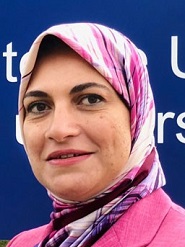 GCRF Partnership Activities: January to July 2019
GCRF Partnership Activities: January to July 2019
By Professor Shereen Hussein, Personal Social Services Research Unit, University of Kent
In 2019, Professor Shereen Hussein received funding from the University of Kent GCRF Partnership Fund to conduct consultative and partnership activities with key stakeholders in the Middle East and Sub-Saharan Africa in relation to population ageing research agenda. In this blog, key activities related to this funding are highlighted while reflecting on both challenges and opportunities related to ageing research in the region.
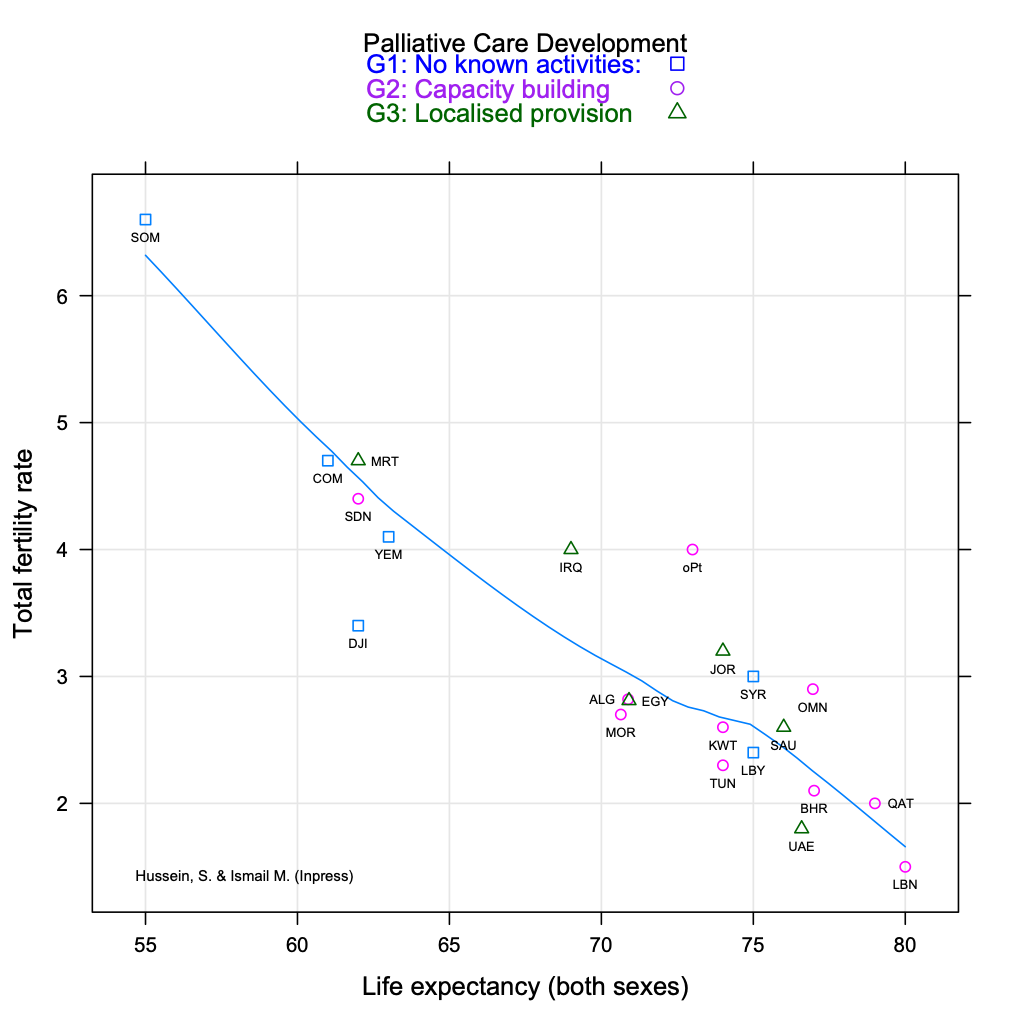
RATIONALE
Global population ageing is happening at an historically unprecedented rate, with most of the world’s older people living in low and middle-income countries (LMIC). There is growing demographic evidence of the fast process of population ageing taking place in the Middle East (ME) and sub-Saharan Africa (SSA). However, there is very little research, or policy attention, to the implications of such phenomena in these countries. Population ageing poses significant challenges for the region at various levels. From addressing escalating burdens on family carers, mainly women, to financing long-term care and support systems.
ME and SSA regions have a unique experience of ageing when compared to previous experiences previously observed in Europe and other developing countries. First, they experience both population growth, with large cohorts of young people, simultaneously with population ageing. Second, while many countries are at an earlier stage of population ageing, due to the ‘youth bulge’ and earlier trends of high fertility rates, the rate of ageing will be considerable by 2050. While some of the countries in these regions face a much faster rate of population ageing than others, they all share similar challenges of limited Long-Term Care (LTC) infrastructure, health and care policy systems and awareness of key support mechanisms that ensure dignity at old age.
Addressing population ageing, while considerably important, is often neglected due to other pressures on LMIC including poverty and youth unemployment. However, population ageing is happening at an unprecedented rate in the Middle East and in some African countries. For example, the pace of population ageing is so fast that within as little as 20-40 years some countries will transfer from young to ageing populations. The latter is considerably shorter than the experience observed earlier in Europe and North America. At the same time, governance, policy, awareness and infra-structure relating to meeting the needs of older people and their informal cares are still at embryonic stages in most of the countries in the region. Furthermore, due to earlier trends of high fertility rates in all countries in the region, the numbers of people entering onto old age are remarkably large and would thus require well-designed policies and services that are specific to the needs of these population and are cost-effective and sustainable.
There is considerable demographic, development and economic need for a project that aims to understanding and enhancing countries’ ability to meet the needs of the growing older population in a dignifying, cost effective and fair manner. This partnership project aimed to strengthen the research capacity of the countries involved and promote interdisciplinary research dialogue addressing an emerging area of significance that currently receiving little attention due to other pressures including economic and social factors in these countries.
The partnership activities took place from February to July 2019 with the following main objectives:
- to mobilise and strengthen networks with key stakeholders in the region
- to decide on priority research areas related to ageing and LTC that are likely to make the most impact.
- to use existing and new networks and identified a set of priorities aimed at enhancing the regions’ LTC preparedness across various levels and sectors within the society.
REGIONAL WORKSHOP ON POPULATION AGEING IN THE MIDDLE EAST, CAIRO, APRIL 2019
In collaboration with the Social Research Center, American University in Cairo, Professor Shereen Hussein organised a multi-disciplinary and multi-sectorial workshop on Population Aging in the Middle East and Sub-Saharan Africa, 9-10 April 2019. The workshop aimed to bring to the forefront of policy debate the scale and implications of population ageing in the region with some of its social, economic and health dimensions through a mutli-sectorial forum of discussion. The workshop was well attended with over 50 participants representing key international, regional and national stakeholders.
During the workshop researchers, national and international policymakers and Non-Governmental Organizations’ (NGOs) were able to share evidence-based research and examples of innovative activities and policy developments with the aim of enhancing the discussion towards planning efficient and effective interventions to secure the welfare of older people and their families in the Arab region and Sub-Saharan Africa.
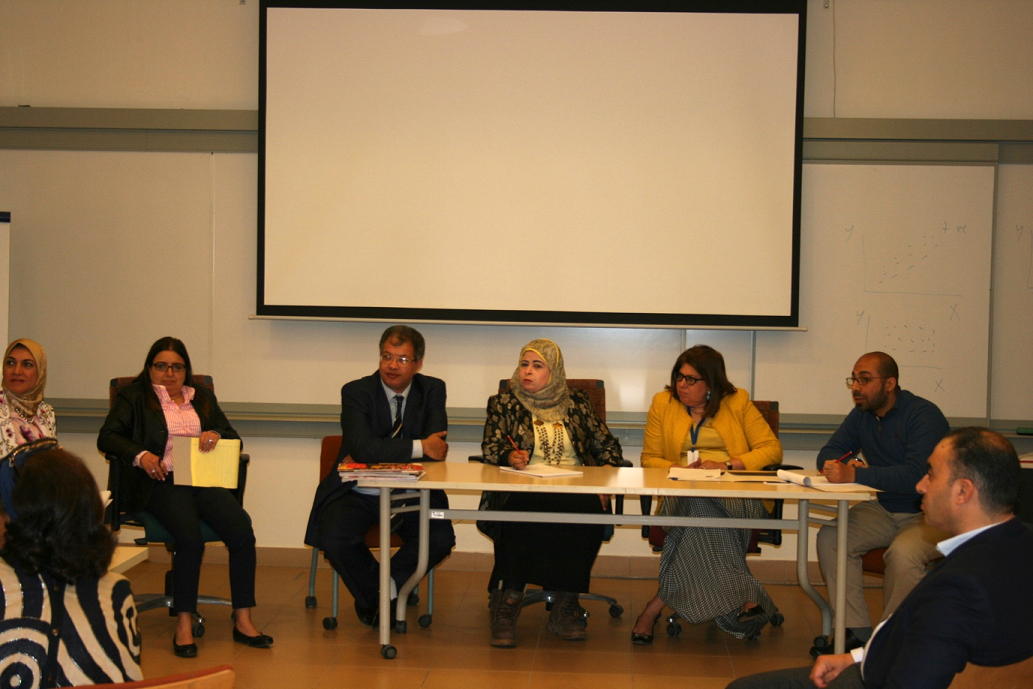
The workshop provided a unique opportunity for knowledge exchange between international and regional researchers, policy makers and non-governmental organisations (NGOs). The workshop has been timely as it coincided with, and included, the launch of the Aging Population Strategy in the Arab Region 2019-2029, by the Arab league in collaboration with the UNFPA/ASRO Regional Office.
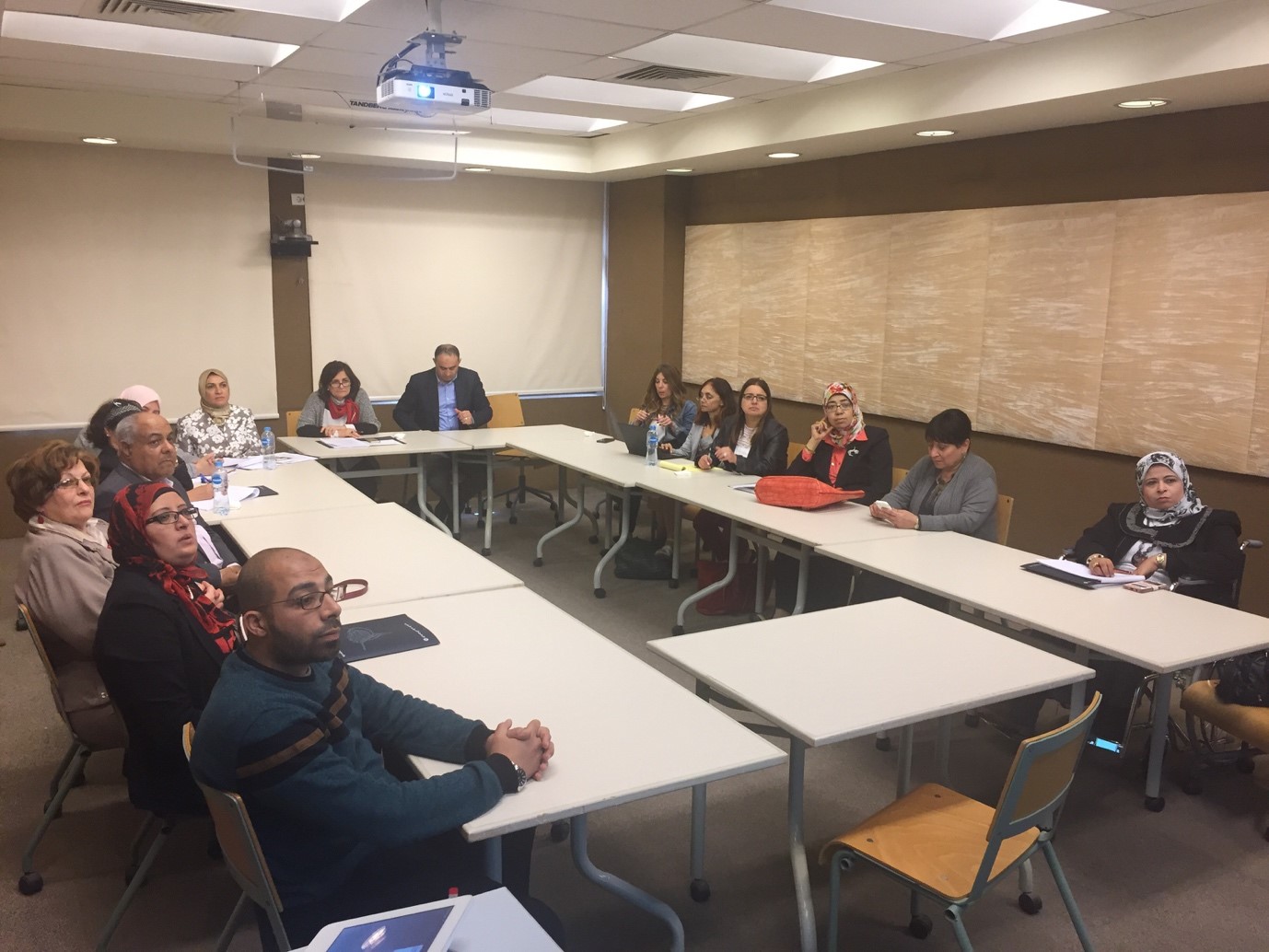
The workshop was opened with an introduction from Professor Hoda Rashad, Director of the Social Research Center and Professor Shereen Hussein, University of Kent. They provided an overview of the significant time the region is at in relation to population ageing as well as recent policy and practice development in the region. Professor Hussein highlighted the diversity in the level and pace of population ageing between and within countries in the region and the need for policymakers to act effectively as the window of opportunity to capitalise on current population dividends is relatively short. Professor Rashad highlighted the competing policy challenges the region is faced with and emphasised the significance of the change taking place in the region. They both highlighted that drivers for addressing population ageing are both economical and societal especially in cultures where dignity at old age is a fundamental policy aspiration.
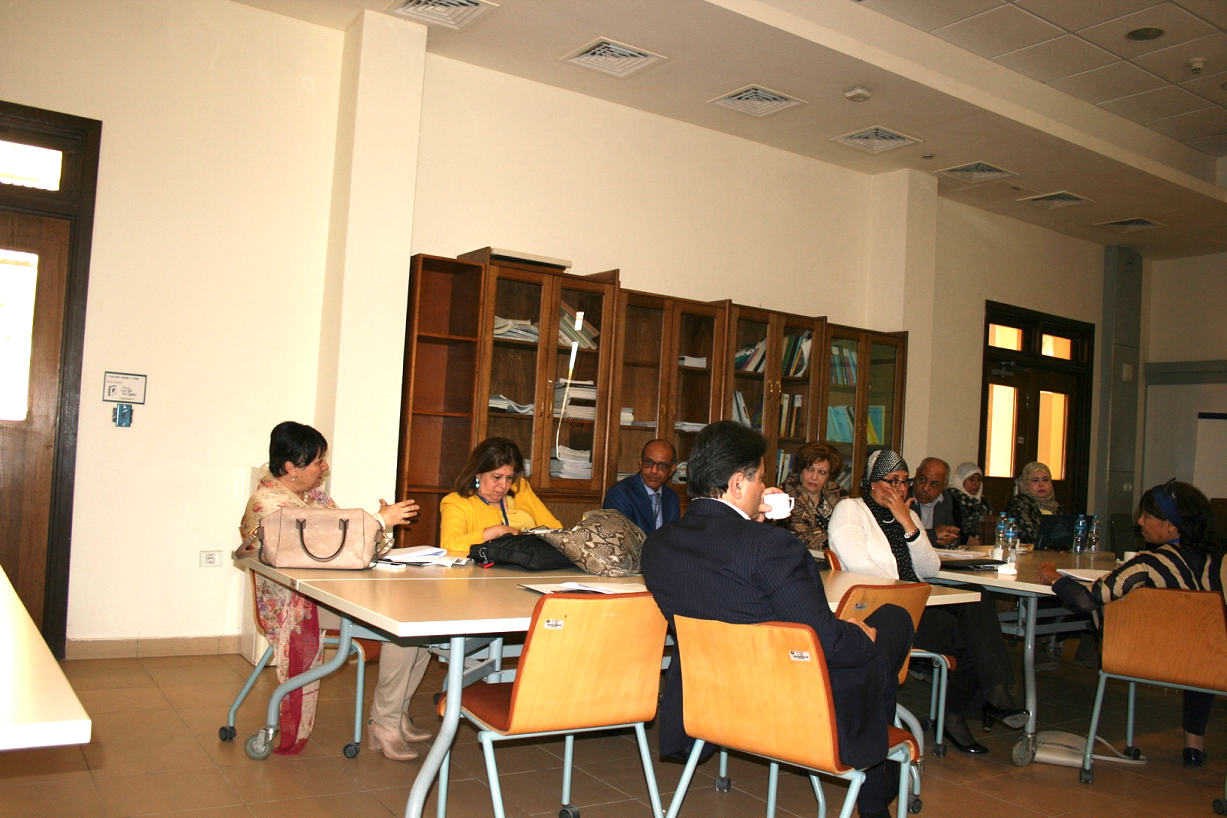
Following the introduction, Dr Ritu Sadana, Senior Health Advisor at the World Health Organisation (WHO), provided a brief overview of the WHO activities in shaping international instruments and collaborations to engage with and be inclusive of older adults. In her talk, she presented the WHO Global strategy and action plan on Ageing and Health 2016-2020 with an emphasis on relevant aspects to countries with fast paced population ageing such as in the Middle East and Sub-Saharan Africa. She discussed the importance of developing interventions that are tailored to the cultural, geographical and demographic context of different countries. Research onto co-morbidity and quality of life of older people would be essential to develop specific intervention with the most impact on the quality of life of older people and their families. In order to achieve SDGs, Dr Sadana stressed the need to conduct high quality research, synthesize findings, test interventions and scale up for inclusivity. She concluded by highlighting the pressing need to understand such dynamics in the coming decade leading to the 2030 SDGs.
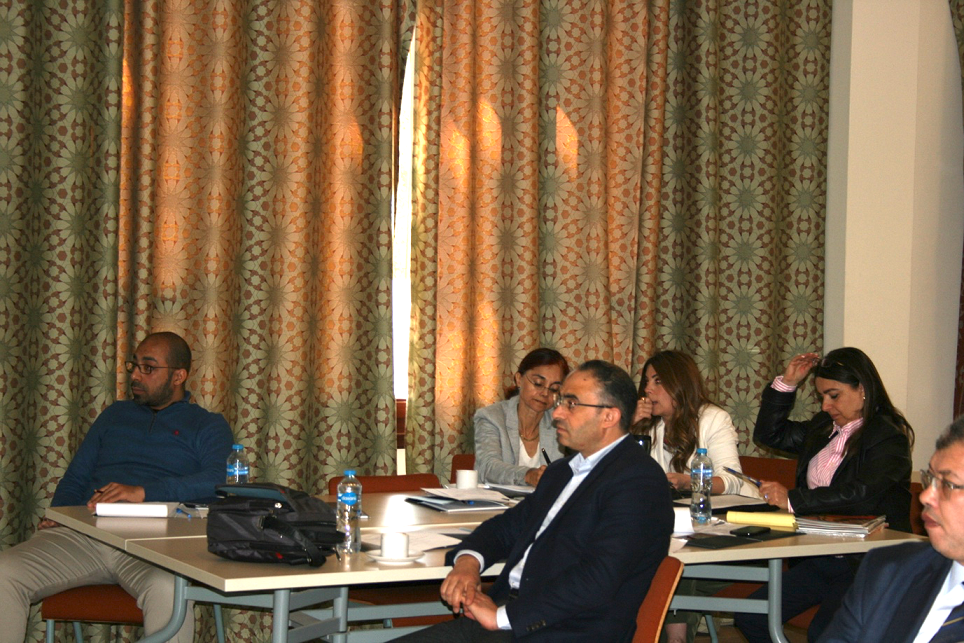
Professor Hussein then gave a presentation highlighting key opportunities and challenges of population ageing in ME and SSA regions. She highlighted the changing demographic structures in the 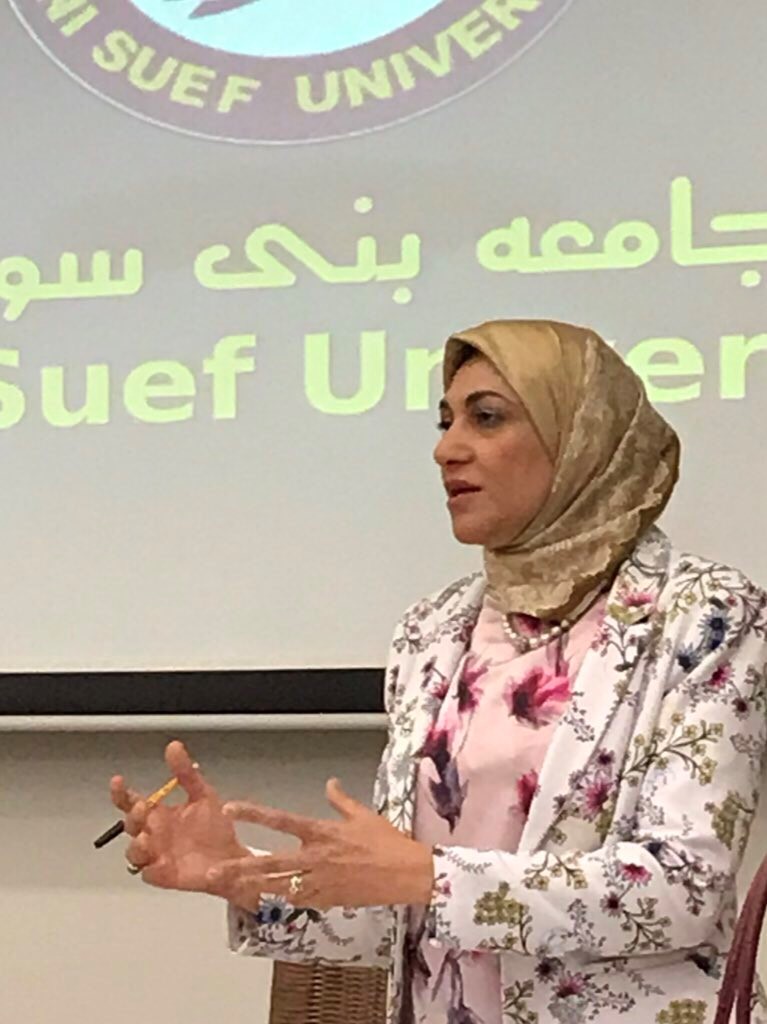 region and how this is taking place at different pace in different countries. Yet, all countries need a shift in policy attention to capitalise on the growth of different strata of the population and address the changing needs of different groups. This is crucial when other socio-economic changes are considered such as urbanisation, displacements and epidemiological transitions. These have implications at all levels of the society from individuals and families to health and care systems and broader social protection policies. She discussed current developments in ageing policies and strategies in the region and how these could be taken forward. She concluded with a call for a paradigm shift where older people are viewed as an asset to societies and means of collaborative working are harnessed between various stakeholders including the state, NGOs and individuals. She also highlighted the vital role of older people and their representativeness in shaping policy and practice. Countries in the region should capitalise on the current demographic dividends with targeted policies aiming to reap economic benefits while enhancing the inclusivity of the labour market. There is a substantial demand to develop cohesive strategies that acknowledges significant health, social and economic unmet needs among older people in the region. The urgency for the move from policy development onto implementation of interventions is considerable given the relatively very short transition period from ageing to aged populations across the region.
region and how this is taking place at different pace in different countries. Yet, all countries need a shift in policy attention to capitalise on the growth of different strata of the population and address the changing needs of different groups. This is crucial when other socio-economic changes are considered such as urbanisation, displacements and epidemiological transitions. These have implications at all levels of the society from individuals and families to health and care systems and broader social protection policies. She discussed current developments in ageing policies and strategies in the region and how these could be taken forward. She concluded with a call for a paradigm shift where older people are viewed as an asset to societies and means of collaborative working are harnessed between various stakeholders including the state, NGOs and individuals. She also highlighted the vital role of older people and their representativeness in shaping policy and practice. Countries in the region should capitalise on the current demographic dividends with targeted policies aiming to reap economic benefits while enhancing the inclusivity of the labour market. There is a substantial demand to develop cohesive strategies that acknowledges significant health, social and economic unmet needs among older people in the region. The urgency for the move from policy development onto implementation of interventions is considerable given the relatively very short transition period from ageing to aged populations across the region.
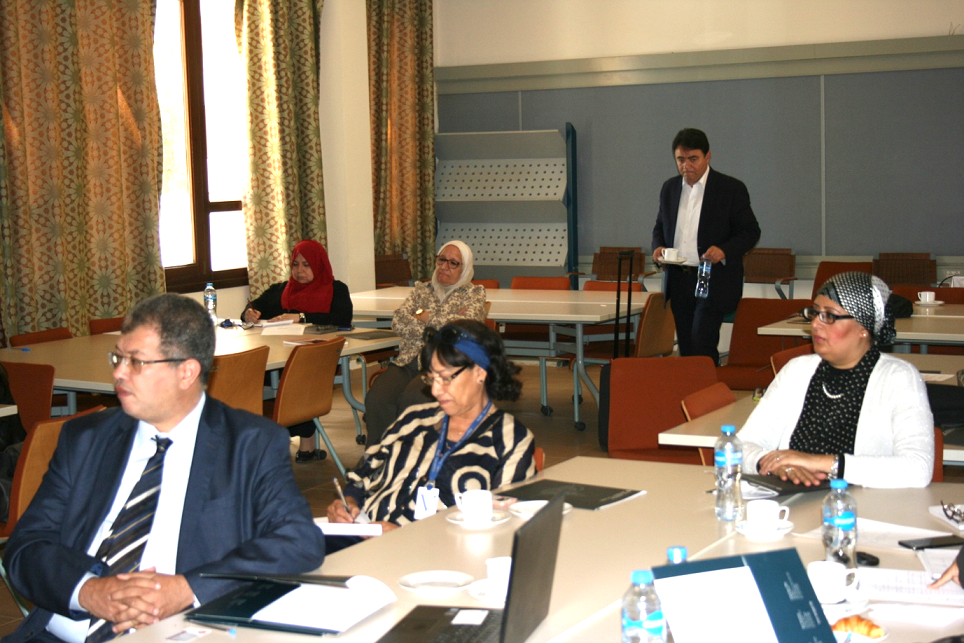
Agenda of the Workshop – 9-10 April 2019
The American University in Cairo (AUC), Egypt
DAY 1 : Tuesday 9th of April 2019
| 09:30-10:00 | Registration |
| 10:00-10:15 | Welcome and Introduction Hoda Rashad, American University in Cairo and Shereen Hussein, University of Kent |
| Session I: Population Aging: International and Regional Overview Moderator: Zeinab Khadr |
|
| 10:15-10.30 | Sustainable Development Goals (SDGs) and Population Ageing Ritu Sadana, World Health Organisation, Geneva |
| 10:30-10:45 | Overview of Population Ageing and Key Challenges in The Region Shereen Hussein, University of Kent |
| 10:45-11:15 | Discussion |
| 11:15-11:45 | Break |
| Session II: Population Aging in the Middle East and Sub-Saharan Africa: Country-Specific Experience- I Moderator: Shereen Hussein |
|
| 11:45-12:00 | Population Ageing in Egypt: Research studies Zeinab Khadr, American University in Cairo |
| 12:00-12:15 | Population Ageing in Egypt: Actions and Efforts Gameel Ebaid, Mona Tawfik and Nadia Abdel Wahab |
| 12:15-12:45 | Population Ageing in Lebanon Abla Sibai and Maya Abi Chahine, American University in Beirut |
| 12:45-01:00 | Discussion |
| 01:00-02:00 | Lunch |
| Session III: Population Aging in the Middle East and Sub-Saharan Africa: Country-Specific Experience- II (Video conferencing facility) Moderator: Abla Sibai |
|
| 02:00-02:15 | Elderly People in the Arab Region and Africa: Policy perspective Dr Mona Tawfiq Yusuf, Cairo Demographic Centre |
| 02:15-02:30 | The economic cost of long term care in Turkey Mohamed Ismail, United Kingdom |
| 02:30-03:00 | Discussion |
DAY 2: Wednesday 10th of April 2019 |
|
| Session IV: Setting Priorities for Future Research in the next 5 Years |
|
| 10:00-10:15 | Priorities in Population Aging Research: Introduction |
| 10:15-10:30 | National Institute of Longevity Elderly Sciences: Who we are? |
| 10:30-10:40 | Aging and Nursing Departments in Egypt |
| 10:40-10:55 | Strengthening the Rights of older people, HelpAge International's interventions in the Middle East |
| 10:55-11:10 | Population Aging and Policy Options in The Arab Region: The Arab Region Aging Strategy |
| 11:10-11:25 | Key Themes Identified by Stakeholders |
| 11:25-11:45 | Discussion |
| 11:45-12:45 | Break |
| Session V: Research Agenda and Funding Opportunities | |
| 12:45-01:00 | Developing global research policy for healthy ageing & collaboration opportunities |
| 01:00-01:30 | International Funding and Regional Opportunities |
| 01:30-02:00 | Wrap Up |
| 14:00-15:00 | Lunch |
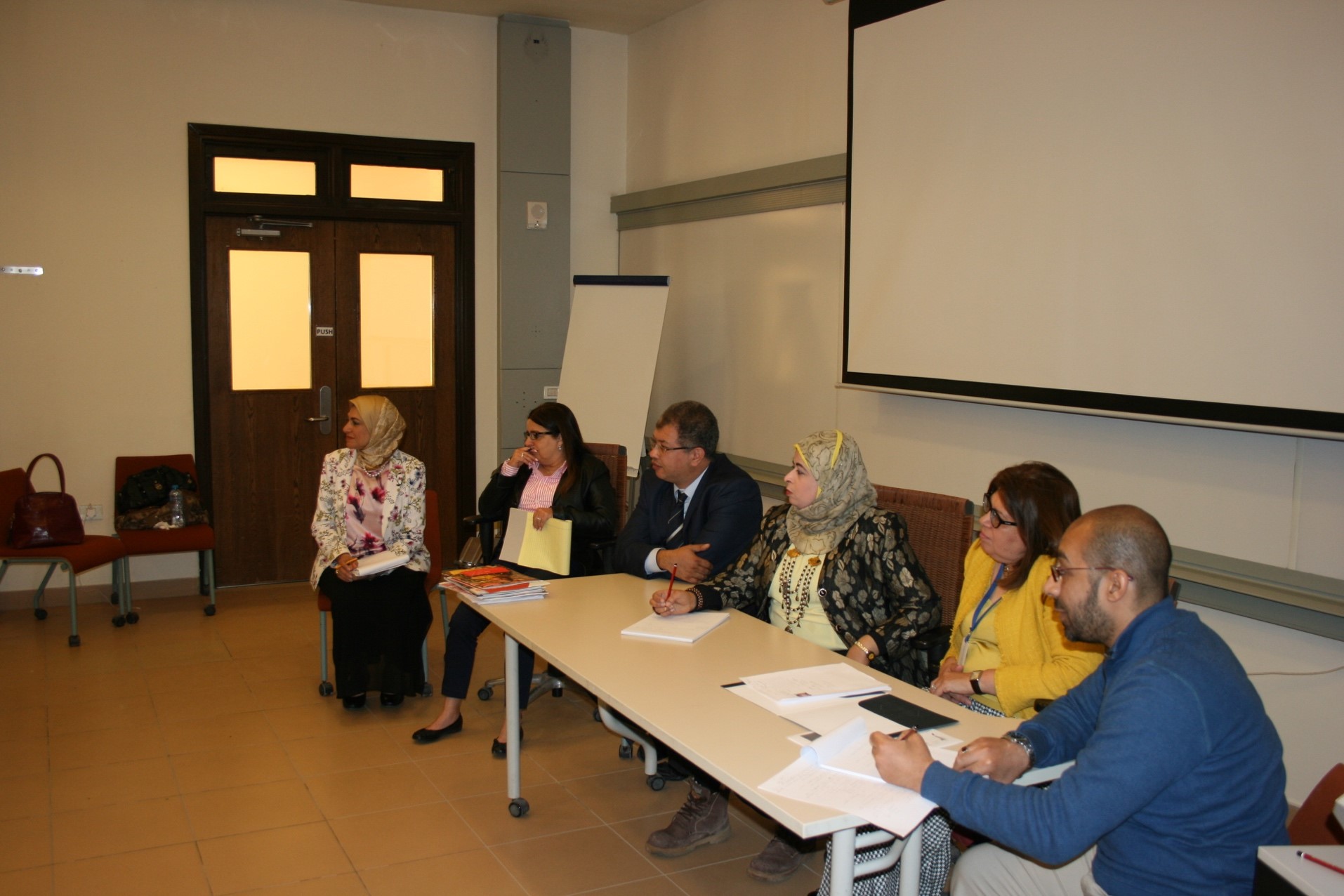
During the second session of the first day of the workshop, Dr Zeinab Khader (AUC) provided an overview of the demographic of ageing in Egypt with a specific focus on social and economic wellbeing of older people. She highlighted the proportional and numerical increase of the older population in Egypt over the past decade; where the growth in the older population exceeded that of the total population between 2006 and 2017. She argued for the need to address older people’s wellbeing that is related to various factors including changes in living arrangements with many older 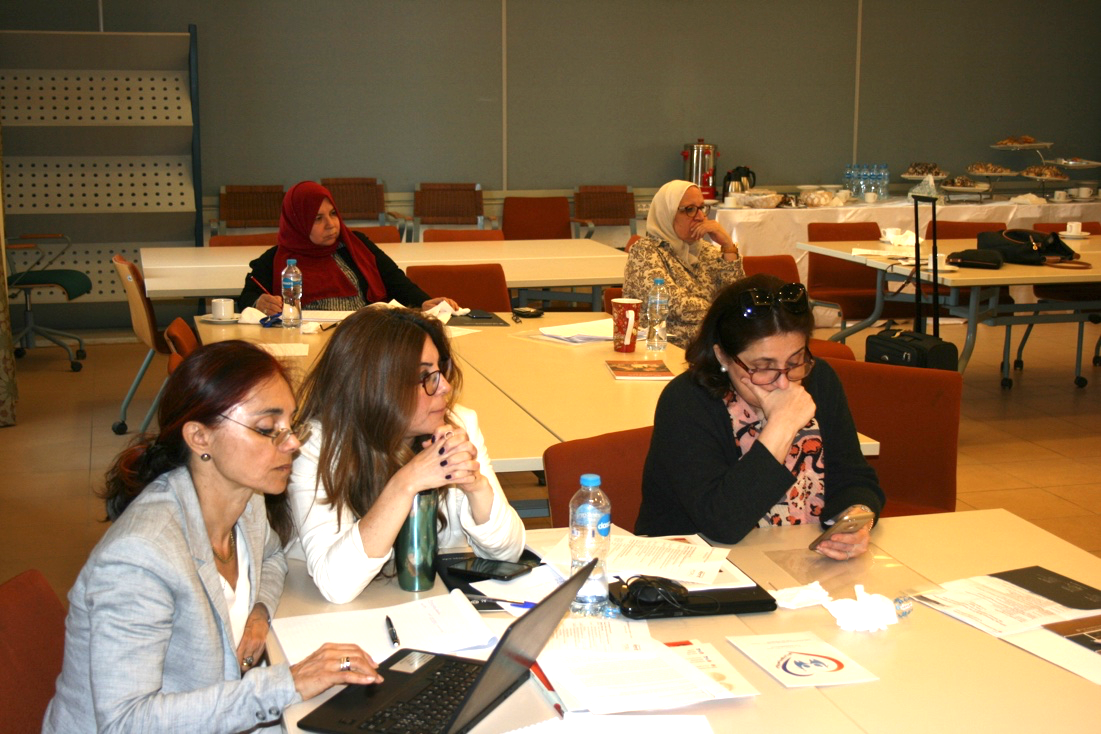 people living alone; the lack of social and recreational facilities and opportunities that are specific to this age group and the limited availability of long term care services such as residential and home care. Her presentation provided insight onto the gender, economic and social inequalities observed among different groups of older people in Egypt. She also highlighted the role played by informal carers who are, in the majority, women with competing labour and care demands. She concluded by calling for adopting a vision of healthy ageing that is culturally sensive and context specific to the region.
people living alone; the lack of social and recreational facilities and opportunities that are specific to this age group and the limited availability of long term care services such as residential and home care. Her presentation provided insight onto the gender, economic and social inequalities observed among different groups of older people in Egypt. She also highlighted the role played by informal carers who are, in the majority, women with competing labour and care demands. She concluded by calling for adopting a vision of healthy ageing that is culturally sensive and context specific to the region.
Delegates then heard from Kemmet non-governmental organisation for elderly care, a not-for profit care and advocacy organisation established in 2014. Mr Gameel Ebaid, Dr Mona Tawfik, and Dr Nadia Abdel Wahab gave separate presentations providing information on the role of the charitable sector in elderly care in the region in general and in Egypt in particular. Mr Ebaid provided an historical over view of residential elderly care dating back to 1890 with the establishment of different organisations concerned with the welfare and care provision of older people in Egypt. He then introduced Kemmet organisation and its goals and objectives, which focus not only on the provision care services but also on cultural and educational activities that adopts concepts of active ageing, participation and engagement. He concluded by calling for policies that revolves around enhancing the dignity and quality of life of older people and their families.
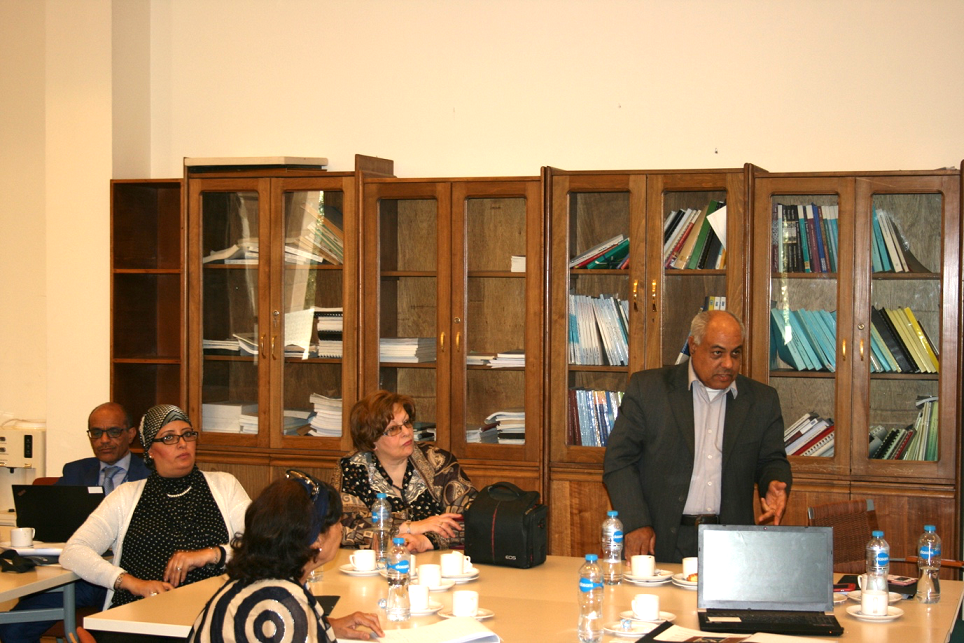
Dr Tawfik reflected on the changing demographics and shift in the population structure, where in the coming years the numbers of older people are projected to exceed the numbers of children under the age of five. She concluded by calling for policies to support the families and informal carers to provide quality care for older people as a component of a more holistic approach. Dr Abdel Wahab reflected on her experience as a lay researcher and a person interested in ageing research when collaborating with different universities and higher education institutions.
Professor Abla Sibai and Maya Abi Chahine, American University in Lebanon, discussed the process of population ageing in Lebanon, which is the fastest ageing country in the region with the highest observed life expectancy. They highlighted the socio-political situation in the region and the need to address humanitarian crisis and conflicts when setting ageing policy and strategies. Ms Abi Chahine provided an overview on trends of population ageing in Lebanon, living arrangements of older people and retirement provision. Professor Sibai introduced the AUB University of Seniors’ programme as an example of an intervention aimed at enhancing the participation, wellbeing and engagement of older people.
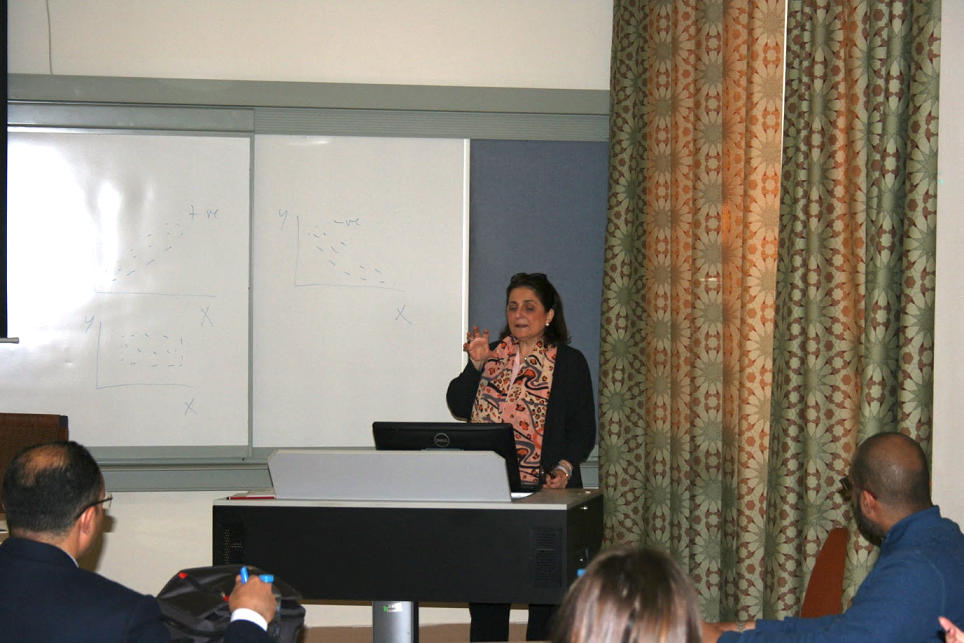
As a case study, Mr Mohamed Ismail, Analytical Research, UK, presented empirical analysis of the cost of long term care (LTC) in Turkey. Using data from the World Bank, OCED, WHO and US Census Bureau, he first presented the current ageing structure in Turkey in comparison to neighbouring countries in Europe and the Middle East. He presented findings related to the current LTC system and service provisions in Turkey with discussion of key challenges and opportunities. As part of this work, he developed an economic model to predict LTC expenditures as a proportion of GDP.
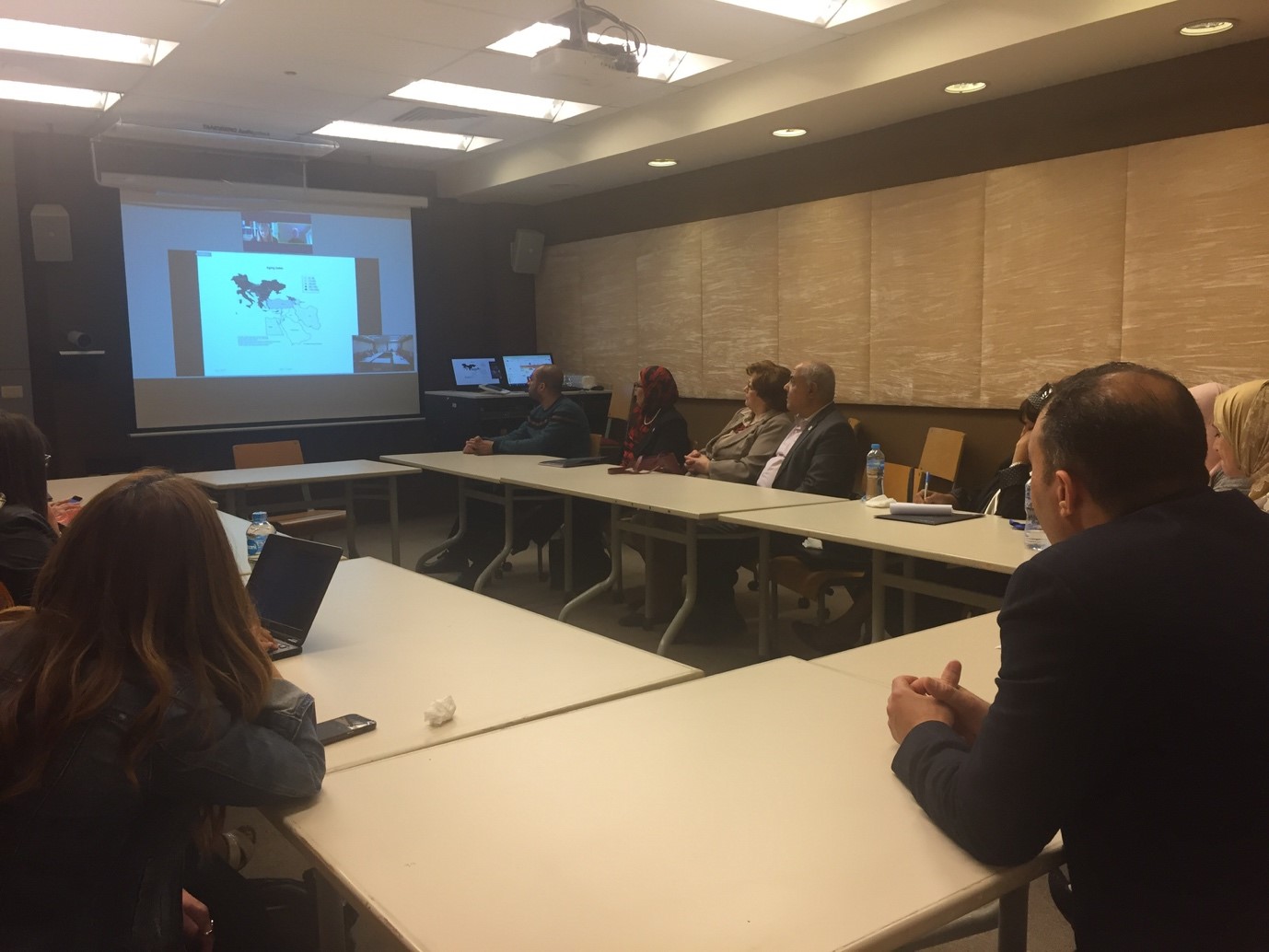
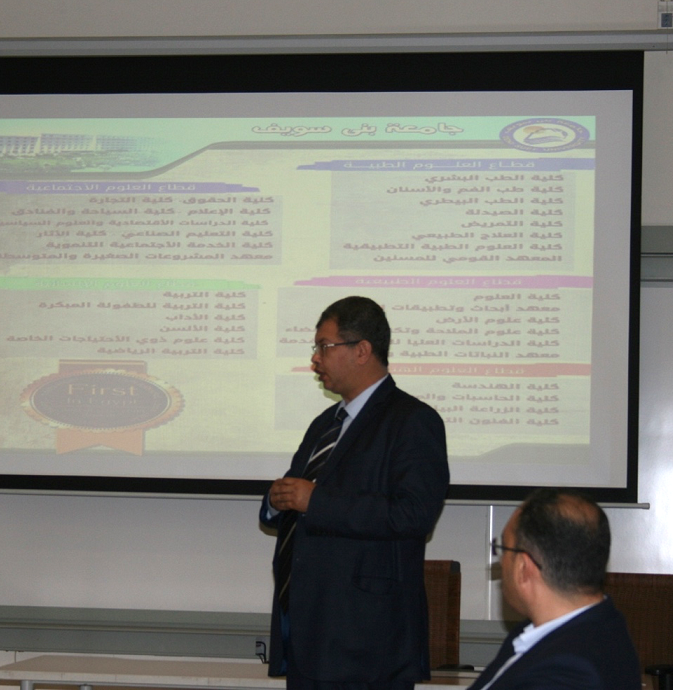
The second day of the workshop started by a brief introduction by Professor Hussein to reflect on the messages from the first day and set the scene for the next set of engagement activities. This was followed by a presentation from Dr Yaser Seif and Dr Omneya Abdel Azem introducing the newly formed National Institute of Longevity Elderly Science, University of Bani Suef, Egypt. They presented the rationale behind the establishment of this institute as the first dedicated higher education establishment for aged research in Egypt. They observed this research institute as providing evidence necessary for ensuring dignity and quality of life at old age. He provided statistics on the number of residential care facilities and the profile of older people making use of such services in different regions in Egypt. He then discussed quality assurance criteria and how these range from workforce measures to policies specific to ensuring to safeguarding and protection of older people’s rights.
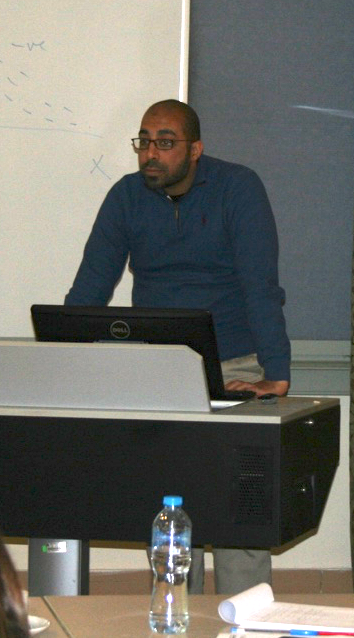
Presenting the perspective of ageing researchers, Tarek Selim, Faculty of Nursing, Mansoura University, talked about main areas of ageing and gerontology studies in the region. He expressed some concerns in relation to the limited courses and teaching/research staff interested in gerontology and ageing research in general. Reflecting on the challenges faced by gerontology researchers he highlighted the descriptive nature of the current research body; competency of researchers to effectively conduct primary and qualitative ageing research including poor interviewing skills and lack of awareness of ways to engage with the older population; and gaps in economic and critical gerontology studies. He concluded by a set of recommendations related to gerontology and ageing teaching and research scope and coverage in the region.
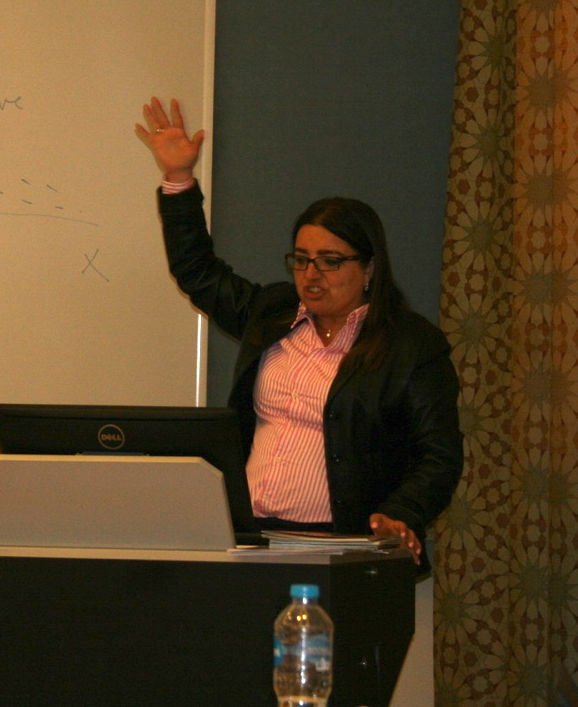 Providing insight onto the role of international non-governmental organisations in the field of ageing, Lina Alqurah, Regional Head of Network Coordination and Development, Eurasia and Middle East (HelpAge International, Jordan) spoke of current activities in the region. Ms Alqurah explained HelpAge International and HelpAge Jordan goals and vision to achieve such aims through a clear theory of change that addresses various desired outcomes at old age. The latter include income security, healthy ageing, security and participation. She then detailed some of HelpAge International work in the region to achieve various goals including supporting older people’s health in humanitarian contexts in Yemen and Lebanon. In Yemen, for example, HelpAge provided mobile health clinics, a hospital referral system, health and nutrition screenings, equipment and medicines to help nearly 20,000 older people to access basic services during conflict and displacement. Ms Alqurah explained how HelpAge activities are steered in accordance to the UN SDGs. However, the impact and reach of activities aiming at improving the quality of life and outcomes for older people are hindered by the dearth of research and data focusing on the experience of older people in the region. Studies focusing on different experiences are needed to effectively develop and implement schemes and activities.
Providing insight onto the role of international non-governmental organisations in the field of ageing, Lina Alqurah, Regional Head of Network Coordination and Development, Eurasia and Middle East (HelpAge International, Jordan) spoke of current activities in the region. Ms Alqurah explained HelpAge International and HelpAge Jordan goals and vision to achieve such aims through a clear theory of change that addresses various desired outcomes at old age. The latter include income security, healthy ageing, security and participation. She then detailed some of HelpAge International work in the region to achieve various goals including supporting older people’s health in humanitarian contexts in Yemen and Lebanon. In Yemen, for example, HelpAge provided mobile health clinics, a hospital referral system, health and nutrition screenings, equipment and medicines to help nearly 20,000 older people to access basic services during conflict and displacement. Ms Alqurah explained how HelpAge activities are steered in accordance to the UN SDGs. However, the impact and reach of activities aiming at improving the quality of life and outcomes for older people are hindered by the dearth of research and data focusing on the experience of older people in the region. Studies focusing on different experiences are needed to effectively develop and implement schemes and activities.
The timing of the workshop coincided with the development of the Arab Region Ageing Strategy (2019-2029), which was launched on the 31st of March 2019 by the League of Arab States and UNFPA. We were fortunate to have a presentation from Dr Hala Youssef, regional expert consultant on population policies at UNFPA, and former Egyptian Minister of Population. The strategy acknowledges population ageing trends observed across the region and highlights the need for action in all countries despite the varying levels of experiences. Dr Yousef, spoke of the strategy awareness to the needs of particular vulnerable groups within populations. Such needs are diverse and include social and income aspects, which are exacerbated in countries with poor social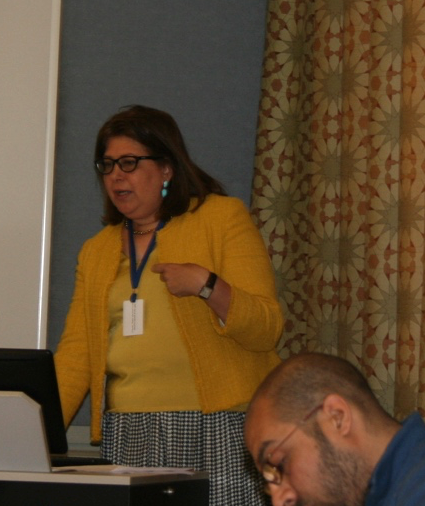 security, and protection systems that are specific to older people. Dr Yousef also highlighted the existing knowledge gap on the specific experiences of older people in the region with negative implications on the process of setting policies as well as practice programmes. She introduced the Arab Ageing Strategy (2019-2029) as evidence of the region’s commitment to the UN SDGs (2030). The Strategy’s principles emphasis the move from a protective to a participatory approach, with its core focus on protecting the rights of older people. The main aim of the strategy is to ensure that by 2029, older persons, regardless of gender, are able live in well-being in an inclusive environment and enjoy their rights to quality social and health care services. They are also able to enjoy full participation without any form of exclusion or discrimination. In practice, the strategy provides an action plan to: enhance social protection and social development programmes that are sensitive to the changing needs of new groups of older people; develop targeted programmes to more vulnerable groups of older people including those living in poverty and in rural or remote communities; enhance countries’ health policies specific to older people with a focus on quality through effective training programmes; support the role of non-governmental organisations and the third sector to work effectively and in integration with governmental and state policies; ensure the care systems are adopted to the needs of different groups of older people including gender and socio-economic status within a person-centred approach; and develop the legislative framework and laws specific to care systems for the elderly to ensure their meaningful participation. To achieve these aims the strategy has five pillars:
security, and protection systems that are specific to older people. Dr Yousef also highlighted the existing knowledge gap on the specific experiences of older people in the region with negative implications on the process of setting policies as well as practice programmes. She introduced the Arab Ageing Strategy (2019-2029) as evidence of the region’s commitment to the UN SDGs (2030). The Strategy’s principles emphasis the move from a protective to a participatory approach, with its core focus on protecting the rights of older people. The main aim of the strategy is to ensure that by 2029, older persons, regardless of gender, are able live in well-being in an inclusive environment and enjoy their rights to quality social and health care services. They are also able to enjoy full participation without any form of exclusion or discrimination. In practice, the strategy provides an action plan to: enhance social protection and social development programmes that are sensitive to the changing needs of new groups of older people; develop targeted programmes to more vulnerable groups of older people including those living in poverty and in rural or remote communities; enhance countries’ health policies specific to older people with a focus on quality through effective training programmes; support the role of non-governmental organisations and the third sector to work effectively and in integration with governmental and state policies; ensure the care systems are adopted to the needs of different groups of older people including gender and socio-economic status within a person-centred approach; and develop the legislative framework and laws specific to care systems for the elderly to ensure their meaningful participation. To achieve these aims the strategy has five pillars:
- Improving the economic and social status of older people
- Improving health outcomes of older people
- Ensuring older people social, economic and cultural participations
- Protecting older people in humanitarian contexts and political conflicts
- Raising awareness of older peoples’ status, needs and issues through effective use of the media
The last session of the workshop was dedicated to discuss collaborative opportunities across the various stakeholders and a closed session with potential funders in the region.
DISCUSSIONS WITH THE UNITED NATIONS’ INTERNATIONAL INSTITUTE ON AGEING (INIA), MALTA, JULY 2019
The GCRF Partnership Fund facilitated a visit to INIA, where Professor Hussein met with the Director, Professor Marvin Formosa, to discuss the institute’s priorities in the region. Professor Formosa discussed the role of INIA that is specific to empower and build capacity of low and middle income countries to face the challenges posed by population ageing in the most effective ways. The Institute provides multi-disciplinary education and training in specific areas related to ageing, whilst also acts as a catalyst for knowledge exchange on issues relating to ageing welfare. The Institute also seeks to achieve its mandate through ‘in-situ’ training programmes.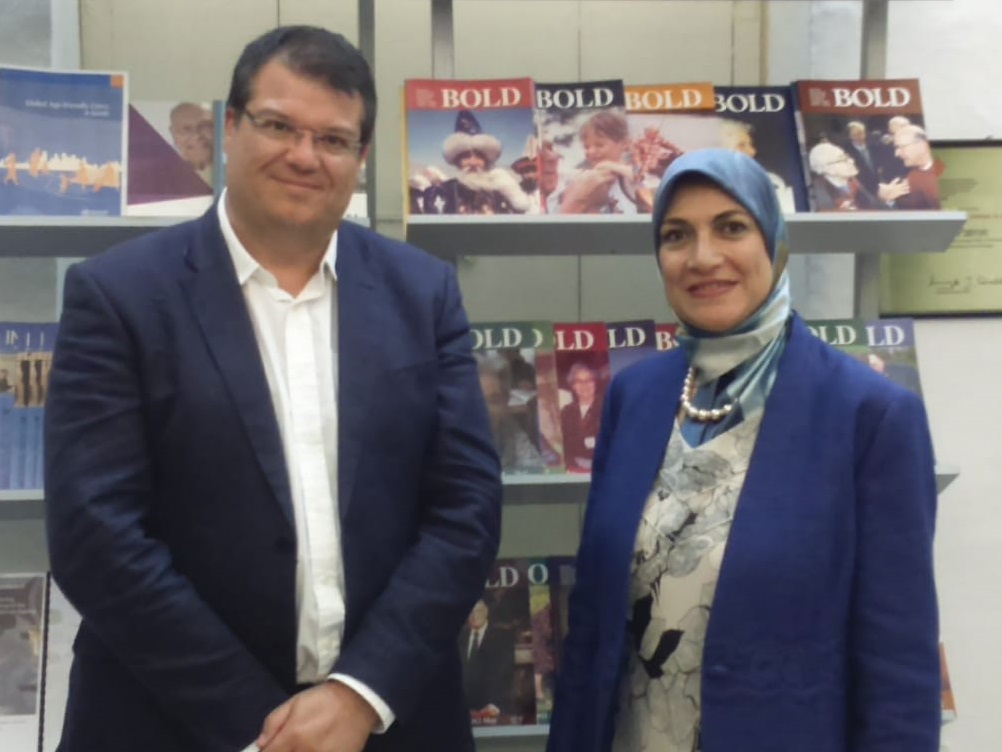
Professor Hussein held a series of discussions around the potential role of INIA in facilitating building capacity and raising awareness in the region. INIA actively engage in the region in running workshops and training activities specific to gerontology and ageing aspects including dementia awareness, palliative care and gerontology research. The Institute provides multi-disciplinary education and training annually in the following areas: Social Gerontology, Health Promotion and Policy Formulation. Up to some years ago, the Institute provided also annual training in Economic and Financial Aspects of Ageing and also on Demographic Aspects of Population Ageing. The training programmes are oriented towards persons, particularly from lower-income countries and from countries with economies in transition, who hold positions as policy-makers, planners, educators and professionals who work or intend to work in the field of ageing or with older persons.
Professors Hussein and Formosa discussed potential future collaborate opportunities both in relation to building capacity and research partnership. Reflecting on the experience of INIA in the region and current evidence base and policy development, they identified a number of potential topics and areas of engagement for further development. The visit facilitated a significant connection with a key international stakeholder with specific interest in ageing policy and practice in the Middle East and Sub-Saharan Africa.
SUMMARY
The activities undertaken through this GCRF Partnership Grant facilitated very valuable and timely discussions. It brought together stakeholders from international, regional and national policymakers, researchers and non-governmental organisations concerned with the welfare of older people from across the Middle East, Sub-Saharan Africa and internationally. The region is observing a level of change related to the changing structure and size of older populations that cannot be ignored. Despite the variability in the demographic structure across the region, all countries are required to act immediately. The implications of population ageing are vast and diverse; they concern all segments of the society and not only older people. However, there is dearth of detailed research studies to allow the design and implementation of effective policy and practice agenda. There is a need for building capacity at different levels and across various stakeholders including the academic body; policymakers; the market as well as awareness raising of the public. It is paramount to facilitate further constructive dialogues to establish clear and multi-sectorial plan of action that is able to facilitate an active role of the family, older people, the third sector and the state within a coherent, integral and holistic approach.
The discussions and intelligence gathering opportunities conducted through this GCRF Partnership Fund provided significant insight yet revealed the need for further dialogue, analysis and capacity building activities at different levels. All participants representing various stakeholders called for further detailed ageing research that is specific to the context of the region and felt the current dearth of evidence is hindering the ability to design and implement effective policies. In addition to actions related to policy development and practice interventions, the discussions highlighted the important role of the media in enhancing the image and status of older people within the public discourse as well as facilitating meaningful discussions of and debates of challenges and opportunities associated with old. There were various discussions at how to use social media and online platforms to raise awareness and enhance collaborative research partnerships.
REFERENCES:
Hussein, S. (2019) Older people’s health and care needs in the Middle East: Policy and practice perspectives within changing population structures. United Nation’s Expert Group Meeting on Measuring Population Ageing. Bangkok, Thailand 25‐26 February 2019
Sibai, A., Semaan, A., Khabsa, J., Tabbara, J. and Rizk, A. (2018) Appraising progress in the ageing agenda in Arab countries of Western Asia and North Africa: 15 years since the Madrid International Plan of Action on Ageing. International Journal on Ageing in Developing Countries, 2 (2): 99-113.
Sibai, A., Semaan, A., Tabbara, J. and Rizk, A. (2017) Ageing and health in the Arab region: Challenges, opportunities and the way forward. Population Horizons, 14(2): AOP